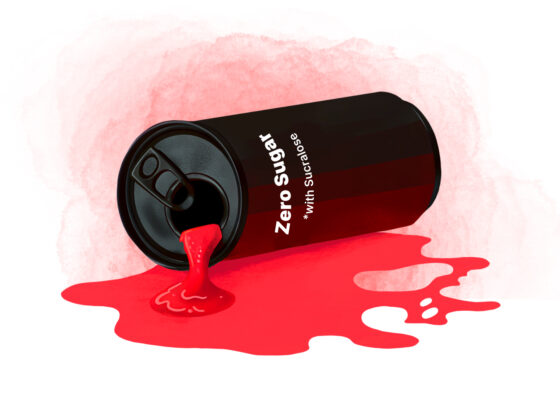Patients with resectable non-small-cell lung cancer show improved major pathological response rates with combination immune oncology agents versus single-agent immunotherapy. The NeoCOAST trial, published in Cancer Discovery, 14 September, demonstrated that combining the anti-PD-L1 monoclonal antibody durvalumab with other novel immune oncology (IO) agents outperforms durvalumab alone in presurgical (neoadjuvant) settings for patients with resectable non-small-cell lung cancer (NSCLC). Furthermore, multiomics immune profiling from combination therapy indicates augmented immune cell activation and function in the combination therapy cohorts.
The phase II NeoCOAST trial, an open-label, randomised platform, window of opportunity study, evaluated a single cycle of neoadjuvant durvalumab alone (n=27) and in combination (separately) with the anti-CD73 monoclonal antibody oleclumab (n=21), the anti-NKG2A monoclonal antibody monalizumab (n=20), and the anti-STAT3 antisense oligonucleotide danvartirsen (n=16). The agents were chosen due to preliminary evidence suggesting their mechanisms of action may be additive or synergistic with durvalumab. Eighty-four patients with untreated, resectable (>2 cm), stage I-IIIA NSCLC were enrolled on the study between March 2019 and September 2020 in 17 study centres across seven countries (Canada, France, Italy, Portugal, Spain, Switzerland, and USA). The primary endpoint was the rate of investigator-assessed major pathological response (MPR), defined as ≤10% residual viable tumour cells in the resected tumour tissue and sampled nodes at surgery.
Results showed that, for patients who received durvalumab monotherapy, MPR occurred in 11.1%, while for patients who received combination therapy with oleclumab the MPR rate was 19%, for patients who received combination therapy with monalizumab it was 30%, and for patients who received combination therapy with danvatirsen it was 31.3%.
The secondary endpoint of pathological complete response (pCR), i.e. complete absence of viable tumour cells in resected specimens, was 3.7% for patients who received durvalumab monotherapy versus 9.5% for combination treatment with oleclumab, 10% for combination treatment with monalizumab and 12.5% for combination treatment with danvartirsen. No new safety signals were noted in any treatment arm, and the safety profiles for the combinations were overall similar to those of durvalumab alone.
The short-term administration of drugs in the neoadjuvant setting provided an opportunity to rapidly evaluate the activity, feasibility, safety, and immune modulation of novel immune-oncology agents. Transcriptomic sequencing of pre- and post-treatment samples revealed an upregulation of genes associated with cytotoxicity, tertiary lymphoid structures (TLS) and lymphocyte recruitment, all of which are considered indicators of an activated immune response. “Specifically, these genes were associated with natural killer cell and CD8 T cell function, possibly mediated by IFN-γ-induced cytokines, and, furthermore, markers of TLS, which have been shown to be associated with responses to neoadjuvant immunotherapy across cancer types,” Tina Cascone, the lead author, from the University of Texas MD Anderson Cancer Center, Houston, told Cancerworld.
Regarding the gut microbiome, the team observed a trend of greater richness in patients with an MPR compared to those without in all arms combined, and noted an increased relative abundance of several bacterial taxa in responders. However, the association between gut microbiome and response was not as profound as that reported for earlier studies. “It is possible that the limited number of samples and geographical and dietary differences could have had an impact on these findings. These results pave the way for potential larger studies to tease out how differences in diet and geography may impact the role of gut microbiome in influencing tumour responsiveness to immunotherapy,” says Cascone.
“The study adds to the growing evidence that combination immunotherapy has a role in the neoadjuvant setting for this patient population,” she says, adding that the platform design, using MPR as the surrogate endpoint of clinical efficacy, allowed the team to make rapid go/no-go decisions on whether the novel therapies were potentially effective and should be tested in larger randomised trials. “When you incorporate comprehensive multiomic profiling, like that used in the NeoCOAST trial, it provides investigators with an opportunity to understand how potential targets and pathways are modulated by combination treatment.”
Approximately 30–55% of patients with localised and locally-advanced NSCLC will experience disease relapse if treated with surgery alone. In patients with resectable NSCLC, neoadjuvant chemo-immunotherapy improves pCR rates and event-free survival compared with chemotherapy alone. The phase III CheckMate 816 study, published in New England Journal of Medicine in 2022, showed that, in patients with stage IB to IIIA resectable NSCLC, the combination of the PD-1 inhibitor nivolumab plus platinum-based chemotherapy resulted in significantly longer event-free survival and higher percentages of patients with pCR than chemotherapy alone. Results of CheckMate 816 led to the US regulators, the FDA, approving nivolumab plus platinum-doublet chemotherapy for neoadjuvant treatment of resectable NSCLC in March 2022. The phase II NEOSTAR platform study, reported by Cascone in Nature Medicine in March 2023, showed nivolumab and ipilimumab together with platinum-based chemotherapy induced higher MPR rates than historical controls of neoadjuvant chemotherapy and, in an exploratory comparison, than nivolumab plus chemotherapy in stage IB–IIIA resectable NSCLC. Furthermore, the phase II COAST study, published in the Journal of Clinical Oncology in October 2022, found that durvalumab combined with oleclumab and durvalumab combined with monalizumab increased investigator-assessed confirmed objective response rate and prolonged progression free survival compared with durvalumab alone as consolidation therapy after concurrent chemoradiation in patients with locally advanced unresectable NSCLC.
The results of the NeoCOAST study have led to the NeoCOAST-2 study, a phase II randomised multi-arm platform trial, which started recruitment in April 2022, and is currently enrolling patients with resectable stage IIA–IIIA NSCLC to receive neoadjuvant durvalumab combined with chemotherapy with either oleclumab or monalizumab or other novel immune-based therapies followed by surgery and adjuvant durvalumab plus oleclumab or monalizumab or other novel immunotherapies. “Our studies are a testament to how clinical trials designed with translational findings in mind can support the rapid advancement of novel immune-based combinations to larger scale studies for patients with resectable, potentially curable, NSCLC,” says Cascone.












